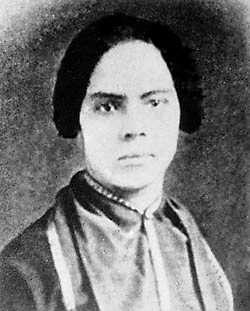Pioneer women and men journalists
Ida B. Wells (full name: Ida Bell Wells-Barnett) (July 16, 1862 – March 25, 1931) was an American investigative journalist, educator n the 1890s, Wells documented lynching in the United States in articles and through her pamphlets called Southern Horrors: Lynch Law in all its Phases, and The Red Record, investigating frequent claims of whites that lynchings were reserved for Black criminals only. Wells exposed lynching as a barbaric practice of whites in the South used to intimidate and oppress African Americans who created economic and political competition—and a subsequent threat of loss of power—for whites. A white mob destroyed her newspaper office and presses as her investigative reporting was carried nationally in Black-owned newspapers.

In 1847 Frederick Douglass moved to Rochester, New York to publish his own newspaper The North Star. Through a merger in 1851, Douglass created a new newspaper entitled Frederick Douglass' Paper. In 1859, he began publishing a monthly paper entitled Douglass's Monthly.
Black Radical by
ISBN: 9781631495342Publication Date: 2019

![Ida B. Wells (full name: Ida Bell Wells-Barnett) (July 16, 1862 – March 25, 1931) was an American investigative journalist, educator, and early leader in the civil rights movement. She was one of the founders of the National Association for the Advancement of Colored People (NAACP).[1] Wells dedicated her lifetime to combating prejudice and violence, the fight for African-American equality, especially that of women, and became arguably the most famous Black woman in the United States of her time.[2] Born into slavery in Holly Springs, Mississippi, Wells was freed by the Emancipation Proclamation during the American Civil War. At the age of 16, she lost both her parents and her infant brother in the 1878 yellow fever epidemic. She went to work and kept the rest of the family together with the help of her grandmother. Later, moving with some of her siblings to Memphis, Tennessee, Wells found better pay as a teacher. Soon, Wells co-owned and wrote for the Memphis Free Speech and Headlight newspaper. Her reporting covered incidents of racial segregation and inequality. In the 1890s, Wells documented lynching in the United States in articles and through her pamphlets called Southern Horrors: Lynch Law in all its Phases, and The Red Record, investigating frequent claims of whites that lynchings were reserved for Black criminals only. Wells exposed lynching as a barbaric practice of whites in the South used to intimidate and oppress African Americans who created economic and political competition—and a subsequent threat of loss of power—for whites. A white mob destroyed her newspaper office and presses as her investigative reporting was carried nationally in Black-owned newspapers.](https://www.thefamouspeople.com/profiles/thumbs/ida-b-wells-1.jpg)

